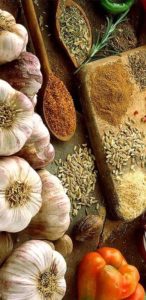Without a doubt there are natural remedies for almost all ailments or illnesses However there are a great many myths about miracle cures for acne, back pain, arthritis and so on Often you will be better saving your money and using natural methods for your aliments, aches and pains.
From our list of herbs and spices, the following are recommended for Colon:
Scroll down for links.
- Psyllium
- Psyllium Husk
- Senna
- Slippery Elm
- Usk
Natural Cures and Remedies for Colon
Recently Viewed
Gas Remedies
Home Remedies Stuffy Nose
Home Remedies Allergies
Home Remedies Diaper Rash
Hair Loss Remedies
Home Remedies Gallstones
Home Remedies Colds
Home Remedies Asthma
Home Remedies Cramps
Chest Congestion Home Remedies
Acne Remedies
Home Remedies Cystitis
Indications (Bael) – Allergy ; Ameba ; Ankylostomiasis ; Aphtha ; Asthma ; Bacteria ; Beriberi ; Bronchosis ; Cancer, abdomen ; Cancer, colon ; Cancer, nose ; Cardiopathy ; Catarrh ; Colitis ; Conjunctivosis ; Constipation ; Convulsion ; Cramp ; Dermatosis ; Diabetes ; Diarrhea ; Dropsy ; Dysentery ; Dyspepsia ; Edema ; Enterosis ; Escherichia ; Fever ; Fungus ; Gastrosis ; Giardia ; Gonorrhea ; Hyperglycemia ; IBS ; Induration ; Infection ; Inflammation ; Jaundice ; Malaria ; Mucososis ; Mycosis ; 49

Indications (Belleric) – Adenopathy ; Anemia ; Asthma ; Bacteria ; Biliousness ; Bite ; Bronchosis ; Cancer ; Cancer, abdomen ; Cancer, colon ; Cancer, gland ; Cancer, liver ; Cholera ; Cold ; Constipation ; Cornea ; Cough ; Cramp ;
Psyllium, Psyllium Husk, Senna, Slippery Elm, Usk
Because of the anthraquinones, nonstandardized preparations should be avoided during pregnancy and lactation (CAN). “Anthraquinones may be secreted into breast milk.” Also contraindicated in arthrosis, hemorrhoids, and nephropathy (CAN), intestinal obstruction, abdominal pain of unknown causes, any enterosis (appendicitis, colitis, Crohns disease, and irritable bowel syndrome), hemorrhoids, nephropathy, menstruation (AHP), and urethrosis (CAN). Not for use in cases of diarrhea or abdominal pain. Discontinue use if diarrhea or watery stools occur. Consult a health care provider in cases of pregnancy or lactation. Not for long-term use, use more than 8-10 days, or overdosage (AHP, CAN). Rhubarb leaves, high in oxalic acid, should not be eaten (CAN). One case of anaphylaxis following ingestion reported (CAN). Contains 4-11% stilbene derivatives, which pose such risks that the herb “can no longer be recommended” (SHT). While widely used, anthranoid-containing laxatives can be habit-forming; some contain compounds suspected of being cytotoxic, genotoxic, mutagenic, and even tumorigenic. Epidemiological studies in Germany reveal that abusers of anthranoid laxatives have a three times higher rate of colon carcinoma (AEH).
A warm water enema helps to clean the rectum of accumulated faecal matter. This is not only the safest system for cleaning the bowels, but also improves the peristaltic movement of the bowels and thereby relieves constipation. A cold water enema is helpful in inflammatory conditions of the colon, especially in cases of dysentery, diarrhoea, ulcerative colitis, haemorrhoids and fever. A hot water enema is beneficial in relieving irritation due to inflammation of the rectum and painfull haemorrhoids. It also benefits women in leucorrhoea.
Helps reduce tumor cells One area of research that holds larch in particular interest is oncology and the immune system. Larch arabinogalactans have been used in studies and show consistent results of reducing tumor cell colonization, increasing macrophages and natural killer cells through stimulation of interferon gamma, which helps make cells resistant to viral infections.
Psyllium
Psyllium Husk
Senna
Slippery Elm
Usk
The usual treatment of colitis with suppressive drugs is based on the assumption that colitis is due to germ infection, which it is not. The suppressive drugs drive back into the system the toxic matter in the colon which nature is endeavouring to eliminate in the form of mucus. They suppress the symptoms temporarily, without removing the cause. In such cases, the symptoms recur and colitis becomes chronic. Plain warm water or warm water with a little olive oil used as a wash-out is the only method of softening and removing the accumulations of hardened matter sticking to the walls of the colon.
